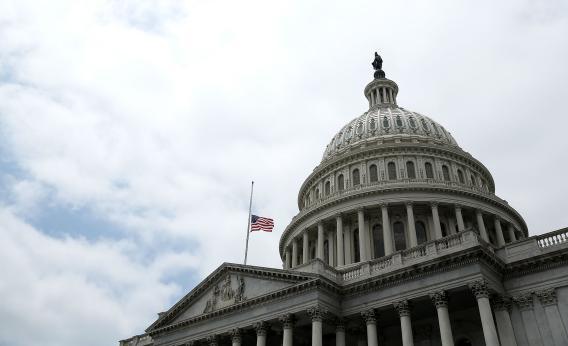You are a member of the United States House of Representatives. You have a seat on a committee of some significance. And you see that pending before your committee is a bill that will alter the tax treatment of a bunch of stuff. The bill has a measure of bipartisan support, and the president—a member of your party—is backing the legislation. Your staff looks it over and it seems good. The Washington Post editorial page likes it. Some PDF from Brookings approves. But there’s a problem. Your chief of staff tells you that the lobbyist who was his chief of staff back when he was legislative director for a now-retired House member is telling him that the solar industry is concerned that one aspect of the legislation will really hurt their industry. The lobbyist in question is calling his friend and former colleague, your chief of staff, because he’s looking for some help and he knows that you’re actively engaged in a Senate primary in which you’re busy touting your record of championing clean energy.
Your chief of staff checked with the Sierra Club and they agree there’s a problem here. So tell your chief that of course you want to fix the problem, so your chief gets some suggested legislative language from the lobbyist and you offer it as an amendment. You tell your green-minded colleagues that the amendment’s got to get in there for the sake of clean energy, and you tell the rest of the bill’s proponents on the committee that the thing is never going to pass unless the solar problem gets fixed. So the amendment passes and the bill moves out of committee.
All in a good week’s work, you think to yourself, until you wind up in one of these New York Times articles about how lobbyists are doing the legislation-writing for Congress.
Now in the particular story the Times is talking about, the lobbyists are writing the legislation to make bank regulation laxer. That sounds terrible to me. But it sounds terrible not because the lobbyists are writing the laws, but because in general I don’t think regulation should be more favorable to the financial services industry. But I do think legislation should be more favorable to the solar industry, and to the intercity bus industry, and to nurse practitioners, and to urban infill real estate developers, and to food truck operators. So while of course I don’t think legislators should simply give a blank check to the lobbyists working for those sectors or professional associations, I do think it’s entirely appropriate for legislators to avail themselves of the expertise of lobbyists when crafting the details of legislative language. A House member has a limited staff budget, and his team is not going to be expert in every issue under the sun. A politician needs to know, broadly speaking, whom he stands with and work cooperatively with those groups.
When you think about it, this is basically the most benign function a lobbyist could be performing. It’s the famous (to political scientists) Hall & Deardorff “Lobbying as Legislative Subsidy” model in which the lobbyists aren’t bribing the legislators to do what the lobbyists want, the lobbyists are helping the legislators execute on a shared agenda.
I’m not asking anyone to love this system. Certainly I don’t love it. And if you want to fix it, the way is to increase the resources available to legislators. I’d particularly look at state legislatures, where low pay, part-time schedules, nearly nonexistent staff budgets, and term limits all tend to conspire to leave politicians dangerously dependent on the expertise of lobbyists. In the federal Congress, the problem isn’t nearly as acute. But it’s still the case that staff resources are finite. If your objective as a politician is to make sure the building trades unions’ interests are taken care of in the W visa section of immigration reform legislation, the best way to do that is to ask their lobbyists rather than trying to guess. If your objective as a politician is to make life easier for the financial services industry, then I think maybe you need to have your head examined, but it’s still the case that asking the lobbyists what your amendments should say is the reasonable approach.
